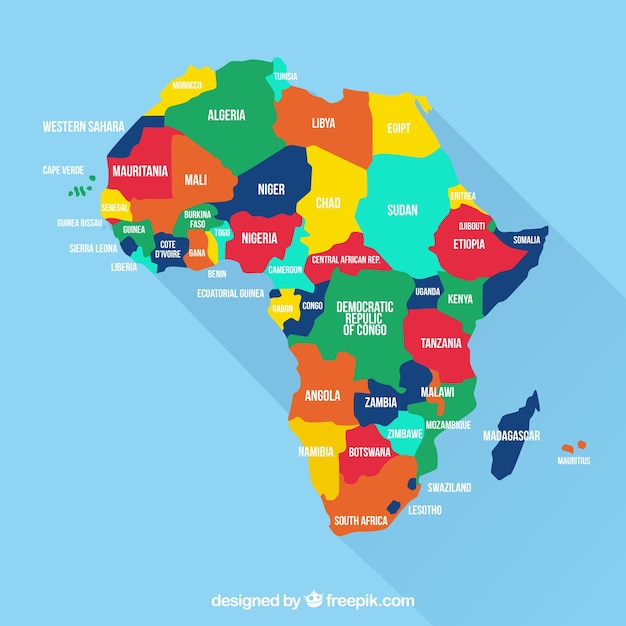Africa – Unveiling Fascinating Facts

Africa is the second largest continent in the world.
The Nile River is the longest river in Africa and the world.
Africa is home to the world’s largest desert, the Sahara Desert.
Mount Kilimanjaro in Tanzania is the highest peak in Africa.
Africa has the largest concentration of wildlife on the planet.
The Great Rift Valley in Africa is visible from space.
Africa has over 2,000 languages spoken throughout the continent.
Egypt’s pyramids are one of the seven wonders of the ancient world.
Africa is known for its vibrant and diverse cultural heritage.
The Victoria Falls, located on the border of Zambia and Zimbabwe, is one of the world’s largest waterfalls.
Africa is the only continent to span all four hemispheres.
The Sahara Desert’s size is equal to the United States.
Africa is believed to be the birthplace of humans.
Africa has 54 recognized countries.
Africa is home to a diverse range of ecosystems, including rainforests, savannas, and deserts.
The continent has some of the world’s most unique and endangered wildlife species.
Africa is rich in mineral resources, including gold, diamonds, and oil.
The Maasai tribe in Kenya and Tanzania is known for its distinctive cultural traditions.
Africa is a continent of contrasts, with some areas experiencing extreme poverty and others being economically prosperous.
The African savanna is characterized by vast grasslands and iconic wildlife, such as lions and elephants.
Africa – Unveiling Fascinating Facts part 2
Africa has a rich musical heritage, with various genres like Afrobeats, jazz, and reggae originating from the continent.
The Baobab tree, also known as the tree of life, is native to Africa.
The Sahara Desert contains both sand dunes and rocky areas.
Africa has abundant natural resources, yet many countries face economic challenges due to corruption and mismanagement.
Africa is home to some of the world’s most diverse and colorful bird species.
The Democratic Republic of Congo has the second-largest rainforest in the world after the Amazon.
Africa experiences some of the most captivating sunsets due to its wide open landscapes.
Africa has unique traditional healing practices that are often based on natural herbs and plants.
The African elephant is the largest land animal on Earth.
Africa has a rapidly growing population, with estimates predicting that it will double by 2050.
The rich soil of Africa supports the growth of numerous crops, including cocoa, coffee, and bananas.
Africa has a long and complex history, with ancient civilizations such as Egypt, Mali, and Zimbabwe leaving behind impressive architectural structures.
Africa’s Serengeti National Park is famous for the largest mammal migration in the world.
Africa is a continent of diverse religions, including Christianity, Islam, and various indigenous beliefs.
Lake Victoria, located in East Africa, is the second-largest freshwater lake in the world.
Africa has a diverse range of traditional cuisines, each with its own unique flavors and ingredients.
The continent is home to some of the world’s most iconic animals, including lions, leopards, giraffes, and zebras.
Africa is known for its vibrant and colorful traditional clothing, often featuring intricate patterns and designs.
The Nile crocodile, found in Africa, is one of the largest reptiles in the world.
Africa has 8 of the 10 highest mountain peaks on the continent of Africa.
The Sahara Desert at night offers stunning views of the star-filled sky.
Africa has some of the world’s oldest rock art, dating back thousands of years.
The African penguin, also known as the jackass penguin, is the only penguin species found on the continent.
Africa is home to some of the world’s most unique and beautiful flowers, including the protea and the strelitzia.
Africa’s diverse landscapes and natural wonders make it a paradise for adventure enthusiasts, offering activities such as safari tours, mountain climbing, and snorkeling.

